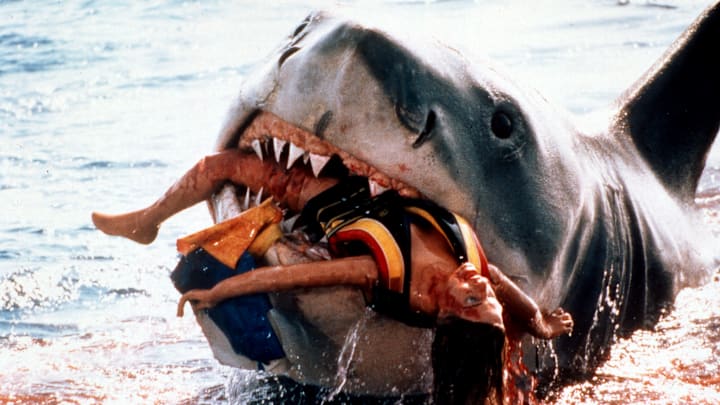It’s no secret that movies have the ability to radically impact popular culture, and not always for the better. In the case of Jaws (1975), which depicts a ravenous great white getting vacationers stuck in its teeth, it meant a surge in unfounded shark fears.
Nearly 50 years following the film’s release, director Steven Spielberg is acknowledging his self-admitted culpability. “That’s one of the things I still fear, not to get eaten by a shark, but that sharks are somehow mad at me for the feeding frenzy of crazy sport fishermen that happened after 1975,” Spielberg said on “Desert Island Discs,” as Smithsonian reported. “I truly, and to this day, regret the decimation of the shark population because of the book and the film.”
Jaws was based on the bestselling 1974 novel by Peter Benchley. Both the source material and the film—which was for a time the highest-grossing movie in Hollywood history—made a mental imprint on the general public that sharks were bloodthirsty beasts. Some have blamed it for the rise in shark fishing, either to capture their valuable fins or for sport, though it’s not clear the film had a direct influence.
Speaking with CBS News in July 2022, psychologist Gabriella Hancock said that people are “not innately afraid of sharks” and that fear of them is “learned and socially enforced.” The major culprit may be what mental health professionals have dubbed “The Jaws Effect,” with audiences assuming sharks are as voracious as the one seen in the film.
Jaws isn’t solely responsible: Mass fear of sharks dates back to at least 1916, when a spate of attacks in New Jersey resulting in four deaths made national headlines. But such was the indifference to the predator that some people believed sea turtles were to blame. (The incident inspired Benchley to write his novel.)
The occasional rampage aside, sharks don’t find humans particularly interesting. The Florida Museum of Natural History recorded just 73 unprovoked bites worldwide in 2021, with nine fatalities stemming from those unprovoked attacks.
And despite its reputed carnage, Jaws wasn’t nearly as gruesome as you might remember. It received a PG rating—although, to be fair, PG-13 ratings weren’t introduced by the Motion Picture Association of America (MPAA) until nine years after the film’s release, in 1984.
[h/t Smithsonian]
